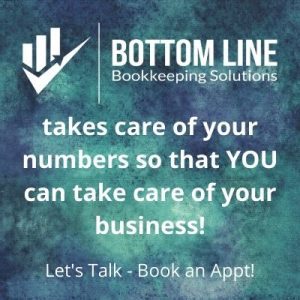 Opening a business bank account is easy, right? You just head to your favorite bank, sit down with a representative, and start an account. Plus many banks allow you to open an account online, so you can do it from the comfort of your couch. Unfortunately, small business banking isn’t quite that simple. Knowing the potential mistakes upfront can help you avoid them, and their costly repercussions.
Opening a business bank account is easy, right? You just head to your favorite bank, sit down with a representative, and start an account. Plus many banks allow you to open an account online, so you can do it from the comfort of your couch. Unfortunately, small business banking isn’t quite that simple. Knowing the potential mistakes upfront can help you avoid them, and their costly repercussions.
Mistake #1 Allowing Your Funds to Comingle
When you open a small business bank account, make sure that there’s no risk that your personal and business funds will comingle. This can be trickier than you imagine and the temptation to roll cash from one account to the other is made easier when your business account is at the same bank as your personal account.
Mistake #2 Choosing the Wrong Bank
Spend some time looking into your crystal ball. You’ll want to choose a bank that can grow with you. This may mean a bank that is well-known and that provides small business loans to companies. I prefer a smaller local bank or credit union. I choose them because they tend to have a lot less red tape and layers of management when it comes time for small business loans. They make decisions locally which also makes the process easier.
Mistake #3 Not Setting Your Account Up Correctly
When you set up a small business bank account, your bank will require registration documents, articles of organization, and potentially some other documentation. You’ll want to make sure that all of your information is not only correct but consistent across the documents. For example, are you registered with a PO box address? If so, this address will need to be the same address for your bank account, not your home address or other addresses. Also, make sure your Federal Tax ID number is correct for your account. There are different banking requirements in different areas so check with your local banker for a list of what you need.
Mistake #4 Not Looking at the Fine Print
What’s the minimum monthly balance? What are the fees for dipping below this balance? Are you limited with the number of transfers you can do each month? If so, how many? Is there a line of credit for your account, and if you use it, what is the interest rate? Make sure you know exactly what you’re signing up for so that you don’t get any costly surprises.
Mistake #5 Not Planning Check Signing Authority
If you’re not the only person who will be doing your small business banking, and other employees will be managing your account for you, then you need to make sure to give them check signing authority and perhaps their own debit card. Additionally, decide how many signatures you need on your checks. In some situations, you may want two people to be required to sign each check.
Finally, make sure the right business name is on your checks. Many people put their DBA (Doing Business As) name on their checks, but you’ll want your legal name on your checks to ensure that all payments are accepted and that nothing is perceived as banking fraud.
When starting your small business banking adventure, just make sure you’re considering all possibilities. Cover all your legal and financial bases. And plan for the future. Ideally, you’ll be in business for a good long time and you want to choose a bank that you can grow with.





